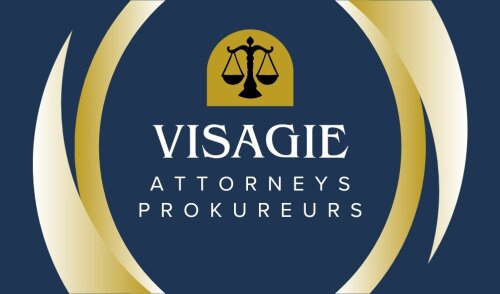Best Bankruptcy & Debt Lawyers in Rustenburg
Share your needs with us, get contacted by law firms.
Free. Takes 2 min.
List of the best lawyers in Rustenburg, South Africa
South Africa Bankruptcy & Debt Legal Articles
Browse our 1 legal article about Bankruptcy & Debt in South Africa written by expert lawyers.
- Debt Collectors in South Africa: Harassment and Verification
- You can demand proof of the debt, the collector’s authority, and a full breakdown before you pay. Do not acknowledge the debt or make part-payments until you verify it. Harassment is illegal. You may set contact times, request written-only communication, and lodge complaints with the Council for Debt Collectors or... Read more →
About Bankruptcy & Debt Law in Rustenburg, South Africa
Bankruptcy and debt law in Rustenburg, South Africa, is designed to help individuals and businesses navigate financial difficulties and ultimately find a way to restructure or discharge their debts. The processes involved can be complex, requiring careful navigation to ensure compliance with legal requirements. The South African legal system offers various mechanisms such as sequestration for individuals and business rescue procedures for companies, providing avenues for debt relief and financial recovery.
Why You May Need a Lawyer
There are several scenarios where you might need a lawyer specializing in bankruptcy and debt in Rustenburg:
- You're facing overwhelming debt and are considering sequestration or voluntary surrender.
- A creditor has initiated legal proceedings to recover outstanding debts from you.
- Your business is insolvent, and you're exploring business rescue or liquidation options.
- You need advice on negotiating settlements or restructuring your debts.
- You're experiencing harassment by debt collectors and require legal intervention.
In these situations, a lawyer can help you understand your options, represent your interests in negotiations or court, and guide you through the legal process.
Local Laws Overview
Several key aspects of South African law are relevant to bankruptcy and debt:
- The Insolvency Act governs sequestration, which is the process of declaring bankruptcy for individuals and partnerships.
- The Companies Act provides for business rescue procedures, allowing financially struggling companies an opportunity to reorganize.
- Debt Counselling and Debt Review processes under the National Credit Act aim to help over-indebted consumers manage their debts through restructuring.
- The law also protects consumers from unfair practices by creditors, offering legal avenues to address such issues.
These laws aim to balance the interests of debtors and creditors while providing mechanisms to facilitate financial recovery and protection from creditor aggression.
Frequently Asked Questions
What is the difference between sequestration and liquidation?
Sequestration applies to individuals and partnerships and involves a court-ordered arrangement to manage and settle debts. Liquidation applies to companies and involves dissolving the business and selling assets to pay creditors.
How can I apply for sequestration?
You can apply to the High Court for voluntary sequestration by proving that you are insolvent and that sequestration would benefit your creditors.
What is debt review, and how does it help?
Debt review is a process where a debt counselor negotiates with creditors to extend payment terms and reduce monthly installments, making debt more manageable without incurring additional penalties.
Can creditors take my home if I declare bankruptcy?
In bankruptcy, certain assets may be sold to repay creditors. However, there are exemptions, and a lawyer can help protect essential assets, including your home, depending on your situation.
How long does the sequestration process take?
The process can take several months from application to being declared bankrupt, depending on various factors, including court schedules and the complexity of your financial affairs.
What is business rescue, and who qualifies for it?
Business rescue is a process that allows financially distressed companies to restructure under supervision to return to solvency. Affected companies need to show an ability to potentially return to profitability.
Can I face criminal charges for not paying my debts?
No, failing to pay your debts is not a criminal offense, although you may face legal proceedings initiated by creditors to recover debts.
What should I do if a debt collector harasses me?
You have rights under the law to be free from harassment. Document all interactions and consider seeking legal counsel to address any inappropriate behavior by debt collectors.
Is it possible to settle debts without going to court?
Yes, many debts can be settled through negotiation and settlement agreements. A lawyer can facilitate these discussions to achieve a favorable outcome for you.
Will sequestration affect my credit score?
Sequestration will negatively impact your credit score, and you'll be listed with credit bureaus. Rebuilding creditworthiness is a gradual process post-sequestration.
Additional Resources
Consider reaching out to the following resources for further assistance with bankruptcy and debt issues:
- The National Credit Regulator (NCR) for information on consumer rights and debt review processes.
- The South African Law Society for guidance in finding qualified legal professionals in bankruptcy and debt.
- Local legal aid organizations that may offer consultation or representation for those who qualify for assistance.
Next Steps
If you require legal assistance for bankruptcy and debt issues, consider the following steps:
- Schedule a consultation with a bankruptcy and debt lawyer in Rustenburg to discuss your financial situation and explore your options.
- Gather all relevant financial documents, including creditor communications, debt statements, and any court papers, to provide a comprehensive overview to your lawyer.
- Evaluate potential costs involved with legal assistance and discuss payment options or arrangements with your lawyer.
Proceeding with informed and skilled legal guidance will help you navigate the complexities of bankruptcy and debt law effectively.
Lawzana helps you find the best lawyers and law firms in Rustenburg through a curated and pre-screened list of qualified legal professionals. Our platform offers rankings and detailed profiles of attorneys and law firms, allowing you to compare based on practice areas, including Bankruptcy & Debt, experience, and client feedback.
Each profile includes a description of the firm's areas of practice, client reviews, team members and partners, year of establishment, spoken languages, office locations, contact information, social media presence, and any published articles or resources. Most firms on our platform speak English and are experienced in both local and international legal matters.
Get a quote from top-rated law firms in Rustenburg, South Africa — quickly, securely, and without unnecessary hassle.
Disclaimer:
The information provided on this page is for general informational purposes only and does not constitute legal advice. While we strive to ensure the accuracy and relevance of the content, legal information may change over time, and interpretations of the law can vary. You should always consult with a qualified legal professional for advice specific to your situation.
We disclaim all liability for actions taken or not taken based on the content of this page. If you believe any information is incorrect or outdated, please contact us, and we will review and update it where appropriate.
Browse bankruptcy & debt law firms by service in Rustenburg, South Africa
Rustenburg, South Africa Attorneys in related practice areas.











